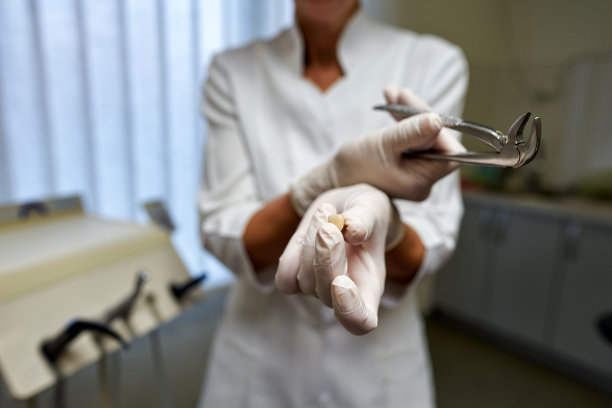Exploring the Causes Consequences and Treatment Options for Periodontal Disease in Modern Dental Practice
Summary: Periodontal disease is a significant public health concern characterized by inflammation and destruction of the supporting structures of the teeth. This article explores the multifaceted causes of periodontal disease, its profound consequences on systemic health and quality of life, and the various treatment options available in modern dental practice. We will delve into the role of lifestyle choices, genetics, and therapeutic interventions, offering insights into prevention and management strategies. Additionally, the psychological and societal implications of periodontal disease will be examined to provide a comprehensive understanding of this prevalent condition. By shedding light on the complex interplay between causative factors and treatment modalities, we aim to underscore the importance of both prevention and early intervention in addressing periodontal disease effectively.
1. Understanding the Causes of Periodontal Disease

The origins of periodontal disease can be attributed to several interrelated causes. Primary among these is the accumulation of plaque, a sticky film of bacteria that forms on teeth. If not properly managed through regular brushing and flossing, plaque can harden into tartar, creating an environment conducive to gum inflammation and disease progression. This bacterial presence disrupts the host’s immune response, leading to localized inflammation and tissue damage.
Additionally, lifestyle factors play a significant role in the development of periodontal disease. Poor nutrition, smoking, and excessive alcohol consumption heighten the risk by compromising the immune system and diminishing the body’s ability to fight infection. Specifically, smoking has been identified as a critical risk factor, significantly increasing both the severity of periodontal disease and the difficulty of successful treatment.
An often-overlooked aspect in understanding periodontal disease is its genetic component. Certain individuals may possess a genetic predisposition that affects their immune response and overall susceptibility to infection. Variations in immune system genes have been linked to more severe forms of periodontal disease, indicating that genetics can influence both the risk and the progression of this common condition.
2. Consequences of Untreated Periodontal Disease
Failing to address periodontal disease can lead to dire consequences that extend beyond oral health. One of the primary complications is tooth loss, which occurs as periodontal tissues deteriorate, leading to the inability to support teeth adequately. This not only affects one’s appearance but also has significant implications for chewing function and overall nutrition.
Moreover, the systemic implications of periodontal disease are increasingly recognized. Research has established connections between periodontal disease and various systemic conditions, such as cardiovascular disease, diabetes, and respiratory ailments. Inflammatory mediators released as a result of periodontal infection may enter the bloodstream, exacerbating systemic inflammation and negatively affecting overall health.
The psychological impact of periodontal disease should not be underestimated. Individuals with gum disease often experience anxiety, depression, and a decreased quality of life due to aesthetic concerns and functional impairments. This multifaceted burden underscores the importance of preventive measures and timely treatment in mitigating the diseases far-reaching effects on health and well-being.
3. Treatment Options in Modern Dental Practice
Modern dental practice offers a range of treatment options for managing periodontal disease, tailored to the severity of the condition. Early-stage periodontal disease may be effectively treated with non-surgical interventions, including professional cleanings and improved oral hygiene practices. Dentists often recommend scaling and root planing to remove plaque and tartar from below the gum line, promoting healing and resolution of inflammation.
For more advanced cases, surgical options may be necessary. Procedures such as flap surgery or bone grafting may be employed to restore damaged tissues and re-establish the attachment of gums to teeth. These interventions aim to reduce pockets around teeth and regenerate lost bone, ultimately improving oral health and function.
In addition to traditional approaches, advancements in technology have introduced innovative treatment modalities. Laser therapy is gaining popularity for its precision and effectiveness in reducing bacteria and promoting healing. Furthermore, the integration of systemic antibiotics and periodontal maintenance programs can enhance treatment outcomes and support long-term health.
4. Prevention and Maintenance Strategies
Preventing periodontal disease begins with education and empowerment of patients regarding proper oral hygiene practices. Regular brushing, flossing, and the use of antibacterial mouthwash are essential components of a successful prevention routine. Patients should be encouraged to establish consistent habits, as early intervention prevents the onset of serious periodontal issues.
Regular dental visits and cleanings are equally crucial for maintaining periodontal health. Professionals can identify early signs of gum disease and provide necessary interventions before the condition advances. Establishing a dental care routine promotes accountability and ensures ongoing education about oral health practices.
Lastly, lifestyle modifications can significantly impact periodontal health. Nicotine cessation programs, balanced nutrition, and stress management can enhance immune function and protect against periodontal disease. Encouraging a holistic approach to health enables individuals to take charge of their oral and systemic health effectively.
Summary:
In summary, the exploration of periodontal disease reveals a complex interplay of causes ranging from bacterial infections and lifestyle choices to genetic predispositions. Its consequences extend beyond the mouth, impacting overall health and quality of life. Prompt and effective treatments, including both non-surgical and surgical approaches, are available in modern dental practice, emphasizing the need for early intervention.
The importance of proactive prevention through regular dental care and healthy lifestyle choices cannot be overstated. By remaining vigilant, individuals can protect their oral health and prevent the systemic effects of periodontal disease. This article is compiled by Vickong Dental and the content is for reference only.



